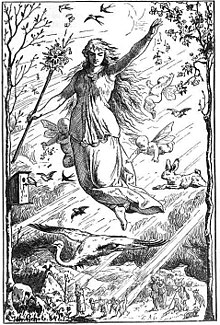I know we've gone over this before, but let's go over it one more time.
No problem.
Jesus arrives in Jerusalem. Historical, literal fact or symbolism?
There is good reason to believe that Jesus who lived in the locality and was a great Spiritual Teacher, would have journeyed to Judea and visited Jerusalem as recorded in the Gospels. There would have been symbolism in visiting the Holy City and during His final sermon He refers to the destruction of the second Temple and the plight of His people.
Same with the rest of the events leading up to the crucifixion. Did they really happen or were they only symbolic? The crucifixion itself. Did it really happen or was it only symbolic?
Which specific events do you refer? The crucifixion happened and there is profound symbolism around this central event in Christian history.
Now Jesus is dead. He gets put in a tomb. So what happened next? Do Baha'is believe the story switches from Jesus to the "body" of believers being dead?
We don't know whether He was put in a tomb although this was certainly recorded in the gospels. It is remarkable that during the last supper, Jesus refers to His body as being the bread and His blood wine and a symbol of the New Covenant. This too is a crucial event to consider.
There are many verses that I have shared with you from the NT that support the connection between the body of Christ as a symbol for the community of faithful believers.
One Baha'i said there is a story that his body got buried under a wall in Jerusalem.
There is nothing in the Baha'i writings that supports this.
But regardless, for sure from this point forward, we are only taking about the body of Christ being his followers, correct?
Abdu'l-Baha rejects the notion of a literal resurrection based on the problem with ascension meaning the ascent into the physical heavens or sky to be with His father in heaven in the spiritual heaven.
If so, then four different writers tell the story as if it is Jesus that comes back to life. So that is wrong. So tell me what the symbolism is in the rest of the gospel story?
The stories read at first glance certainly appear to support that the physical resurrection literally happened, but there are inconsistencies and oddities in the accounts if we are taking them literally. For example His followers don't seem to recognise Him at first and He appears as both a physical person and then a spirit. Its not consistent with an historic account. Further there is little to support that any of the Gospel writers were eye witnesses to the events they wrote about. The first gospels were written at least 20 years after Jesus was crucified so it is thought that the synoptic gospels at least drew their inspiration from the preaching of Paul to the Gentiles. An emphasis on a resurrected God resonated with the Greeks, and why not as it had profound allegorical meaning that connected so well with scripture. Paul never saw the resurrected Christ but reading 1 Corinthians 15 you have the impression he did, until you reread it a few times.
They see the empty tomb. What is the symbolism?
The empty tomb is symbolic of rising above both the death of unbelief and physical death.
They go back tell the others. Symbolism in that?
This is the beginning of when the Gospel or Good News of Christ is preached, three days after His crucifixion. The Body of Christ (The Church comes to life).
Jesus appears and talks to them, but if it is not Jesus but the believers as the body of Christ, then explain what really happened?
Christ lives in their hearts and they spiritually experience Christ and the One true living God.
Thomas has his doubts but touches one of the other believers and not Jesus?
Thomas realises he must follow in Jesus's footsteps and be prepared to suffer as He did, even be prepared to be put to be martyred as Christ was.
Then, the last thing, Jesus ascends. So, in keeping with the believers being the body, they rise into the clouds?
His Cause is established, the Name of Christ is Glorified, and we know that Jesus is eternally alive with His Father in Heaven. We too can have eternal life and rise to glory if we believe in Him and follow Him.

